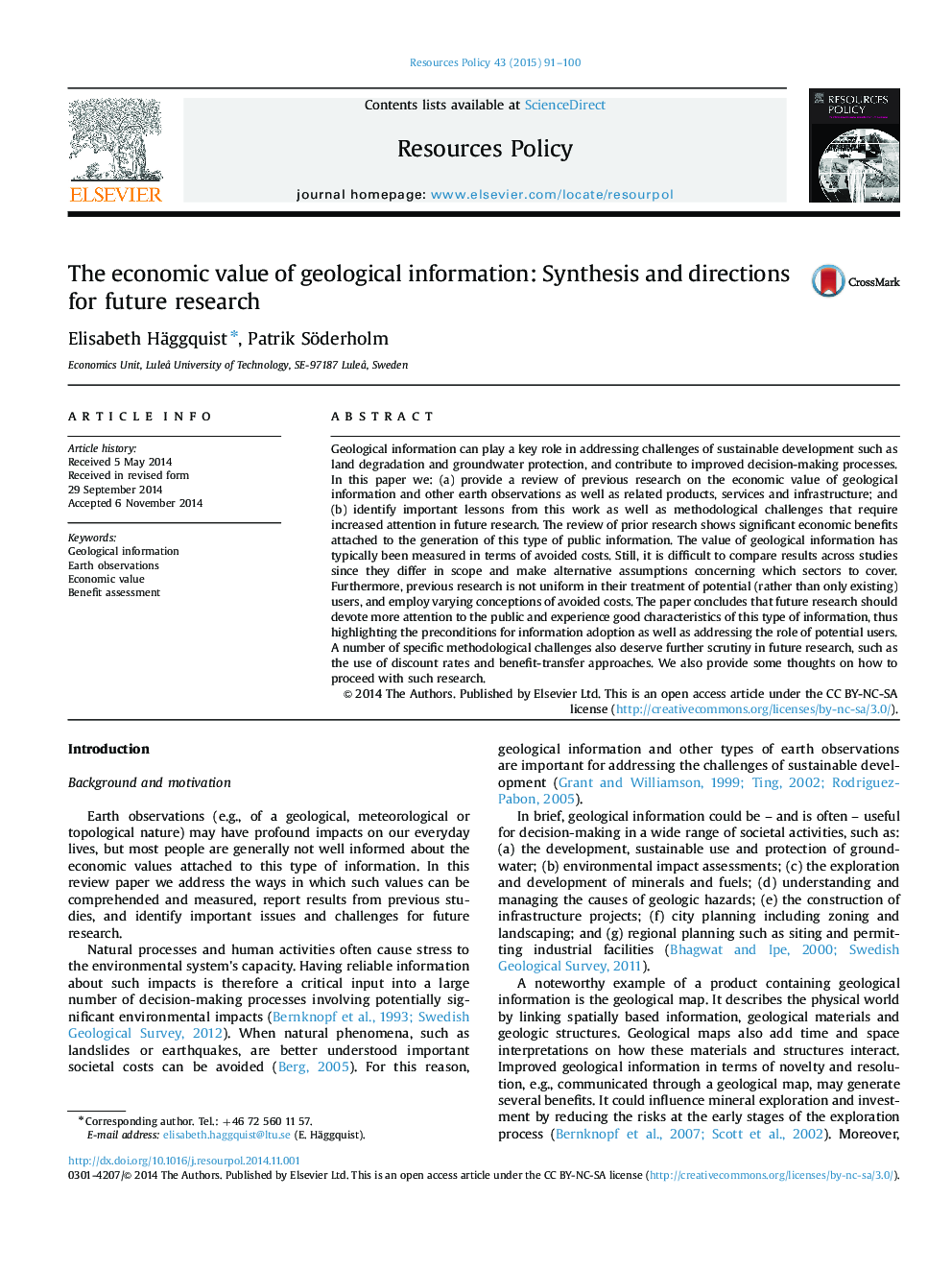| Article ID | Journal | Published Year | Pages | File Type |
|---|---|---|---|---|
| 7387837 | Resources Policy | 2015 | 10 Pages |
Abstract
Geological information can play a key role in addressing challenges of sustainable development such as land degradation and groundwater protection, and contribute to improved decision-making processes. In this paper we: (a) provide a review of previous research on the economic value of geological information and other earth observations as well as related products, services and infrastructure; and (b) identify important lessons from this work as well as methodological challenges that require increased attention in future research. The review of prior research shows significant economic benefits attached to the generation of this type of public information. The value of geological information has typically been measured in terms of avoided costs. Still, it is difficult to compare results across studies since they differ in scope and make alternative assumptions concerning which sectors to cover. Furthermore, previous research is not uniform in their treatment of potential (rather than only existing) users, and employ varying conceptions of avoided costs. The paper concludes that future research should devote more attention to the public and experience good characteristics of this type of information, thus highlighting the preconditions for information adoption as well as addressing the role of potential users. A number of specific methodological challenges also deserve further scrutiny in future research, such as the use of discount rates and benefit-transfer approaches. We also provide some thoughts on how to proceed with such research.
Related Topics
Physical Sciences and Engineering
Earth and Planetary Sciences
Economic Geology
Authors
Elisabeth Häggquist, Patrik Söderholm,
